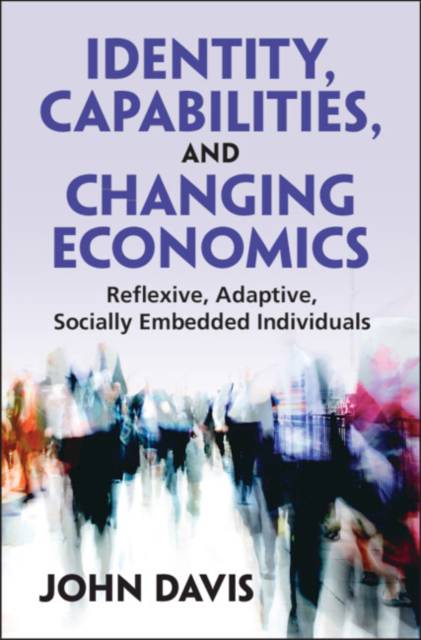
Bedankt voor het vertrouwen het afgelopen jaar! Om jou te bedanken bieden we GRATIS verzending (in België) aan op alles gedurende de hele maand januari.
- Afhalen na 1 uur in een winkel met voorraad
- In januari gratis thuislevering in België
- Ruim aanbod met 7 miljoen producten
Bedankt voor het vertrouwen het afgelopen jaar! Om jou te bedanken bieden we GRATIS verzending (in België) aan op alles gedurende de hele maand januari.
- Afhalen na 1 uur in een winkel met voorraad
- In januari gratis thuislevering in België
- Ruim aanbod met 7 miljoen producten
Zoeken
Identity, Capabilities, and Changing Economics
Reflexive, Adaptive, Socially Embedded Individuals
John B Davis
Paperback | Engels
€ 35,45
+ 70 punten
Omschrijving
Mainstream economics assumes economic agents act and make decisions to maximize their utility. This model of economic behavior, based on rational choice theory, has come under increasing attack in economics because it does not accurately reflect the way people behave and reason. The shift towards a more realistic account of economic agents has been mostly associated with the rise of behavioral economics, which views individuals through the lens of bounded rationality. Identity, Capabilities, and Changing Economics goes further and uses identity analysis to build on this critique of the utility conception of individuals, arguing it should be replaced by a conception of economic agents in an uncertain world as socially embedded and identified with their capabilities. Written by one of the world's leading philosophers of economics, the book develops a new approach to economics' theory of the individual, explaining individuals as adaptive and reflexive rather than utility maximizing.
Specificaties
Betrokkenen
- Auteur(s):
- Uitgeverij:
Inhoud
- Aantal bladzijden:
- 304
- Taal:
- Engels
Eigenschappen
- Productcode (EAN):
- 9781009438254
- Verschijningsdatum:
- 1/02/2024
- Uitvoering:
- Paperback
- Formaat:
- Trade paperback (VS)
- Afmetingen:
- 152 mm x 229 mm
- Gewicht:
- 408 g

Alleen bij Standaard Boekhandel
+ 70 punten op je klantenkaart van Standaard Boekhandel
Beoordelingen
We publiceren alleen reviews die voldoen aan de voorwaarden voor reviews. Bekijk onze voorwaarden voor reviews.









